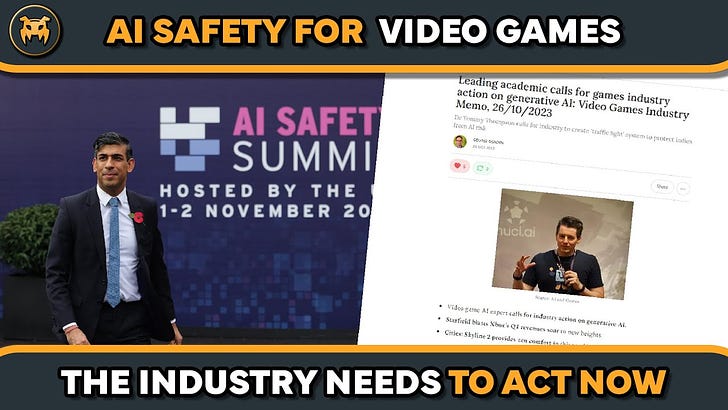The Video Games Industry Needs to Start Self-Regulating for Safety with AI
Getting ahead of the issue, rather than letting it become an epidemic
Keep reading with a 7-day free trial
Subscribe to AI and Games to keep reading this post and get 7 days of free access to the full post archives.




